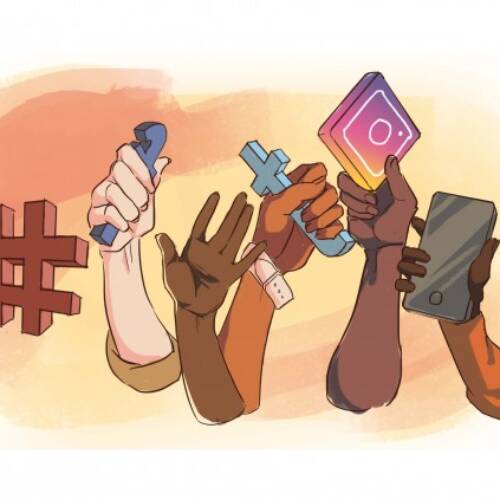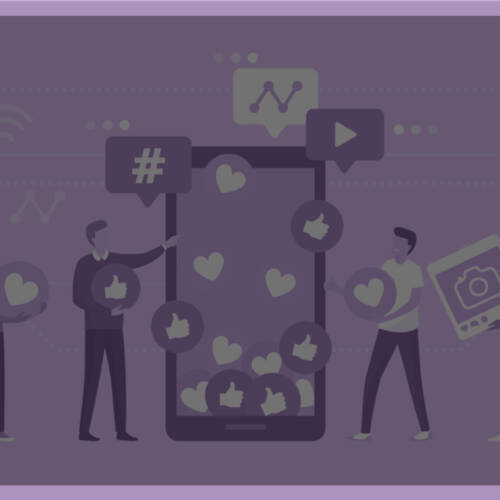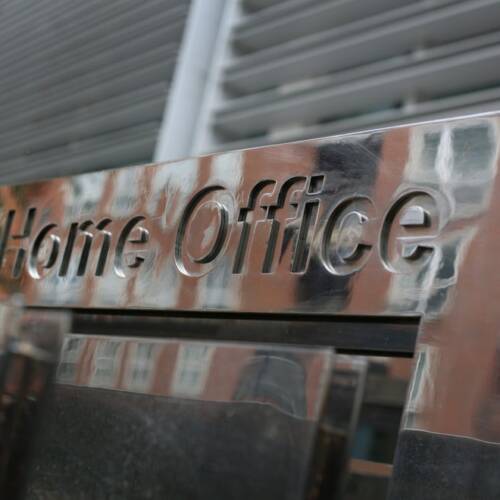
Have We Become Too Reliant On the Internet?
16 Dec 2020On Monday morning, like many others who rely on its services, we found that our Google, especially our Gmail accounts, not working or working with severe delays. Other services we regularly use were also down.
The outage appears to have been part of a global (or near-global) problem. And although the services came back soon after, it has made us think about the place of the internet in our lives.
We are millennials who grew up in the 1990s. We are probably the last generation – especially in the West – to remember life before the internet, a brief window as that was. Even after the internet came into our lives, most of our times with it were held hostage by latency, slowness, breakdowns and so on.
That, however, was a time before broadband, before 5G and definitely before Google became a powerhouse of the internet. Google has become practically synonymous with the internet today, and that is no secret. From e-mails to search engines, video and streaming services to basic tools such as document sharing, it is an ever-present force for internet users.
The role of the internet in our lives have expanded even more over the past nine months. With the coronavirus shutting down much of our lives outside, we have been reliant on the internet for our groceries; keeping in touch with our friends; the education of our children; and our own ability to work.
There is no denying that the contributions brought in by technology and the internet have been a boon to our lives. Through the internet, we have kept ourselves entertained via streaming or through events held online. The fact is, life under lockdown would have been far less bearable five, let alone ten years ago before such technologies became entrenched and stable enough to sustain our lives.
We are not Luddites. While we fully acknowledge that we enjoyed some aspects of life before new technologies changed or upended them.
We do not see the development of technology, the internet or social media as an inherently negative thing. However, we believe that negative developments relate to how we use technology.
And we think that Monday morning’s outage holds a lesson there.
Let’s look at our morning (as a team). Because of the outage, we could not access our e-mails, nor could look into and edit papers and articles that were uploaded by our other colleagues on Google Docs. Some of us could not listen to the series or Livestreams that we follow on YouTube (like we usually do when we work). Every single one of these seemingly-unrelated utilities was left out of service by the loss of the single common infrastructure that carried them.
Increased interconnectivity and integration has made our platforms capable of synchronising with each other with much greater ease but also left them reliant on a functional infrastructure.
And we are not alone in our experiences. Urban Muslimz spoke to Arfah Farooq, the co-founder of Muslamic Makers, and she shared the same sentiment. “I do think we’ve become over-reliant on technology. I’ve experienced this outage as well, and I thought it would be a good opportunity for me to instead write a reflection piece on 2020, but I was going to need my Google Calendar to actually see what I’ve gotten up to that year, and that’s when I realised….WOW…I actually can’t do anything right now.”
Furthermore, we know that thousands of Muslims use Google’s Qibla finder, for example, ahead of prayers.
Outside Google, we know many Muslims who use prayer apps and other faith tools to help with our spiritual lives. In the age of coronavirus lockdowns, the online space has also been vital in helping us keep in touch with our families, mosques and communities.
The integration of these tools in one place – usually our phones – are a boon. But it also shows how easily we can be left utterly lost once the foundation that enables such integration falters.
Examples of how harmful reliance on a single infrastructure can be are all around us. Our main fears of Brexit-related shortages come from the possible loss of the supply chains through which we keep the UK supplied with essential goods. And we had four years to prepare for that.
The coronavirus crisis also provides an example. Years of design logic in which companies favoured instant deliveries over stockpiling has left the world critically short of PPE and other vital goods as soon as supply chains from China were interrupted back on February.
We don’t see our reliance on technology, both in benefits or risks, as any different. There is no harm in using technology and integrating our lives with it. But when a simple interruption in services can cause a chunk of our workday to be lost, then maybe we need to reconsider its place in our lives.
Of course, that could be said for anything, including electricity and water utilities and roads. All of these are things that our lives rely on.
So why are we singling out technology and, more specifically, the internet?
Because we believe that the level of technological integration – the internet of things – dwarfs most other types of utilities. Today, everything from our books to our cars; our home security and home comfort; our entertainment and our faith support; all rely on the internet. So does our banking, our ability to pay our bills or handle any other official business. Our ability to entertain ourselves and keep busy relies almost solely on the internet.
All of these services can be knocked out accidentally – as was the case on Monday – or willingly – as it is happening increasingly more frequently as repressive governments shut down the internet during times of unrest.
But perhaps, more insidiously, unlike roads, electricity or water, the internet is still not seen as a national utility. Instead, we are wholly reliant on privatised networks. Rather than roads or other infrastructure that may be built with public money and is accountable to the public good (at least ideally), the forces providing us with internet have no such obligation.
A person using BT or Virgin will have different experiences with their internet and different levels of reliability in the service they receive. And while picking a company that provides better service is the main conceit of private companies, the fact is that not all companies offer equal coverage. And sometimes, their sheer size makes the existence of any workable alternative unlikely.
Such was the case Monday. Alternatives to Google exist, but Google itself is so ever-present that its loss was enough to cause short-lived chaos and uncertainty around the world (And we think everyone will agree with us when we say that we had enough chaos and uncertainty this year as it is).
When supply chains were interrupted due to the coronavirus, those who took early precautions or continued to keep essential emergency stockpiles were the ones least impacted. Similarly, the main concern with Brexit at present is whether our national stocks and production capacities can keep up with the demand if supply networks from the mainland are interrupted.
We believe that a similar attitude is needed with our reliance on technology and, specifically, the internet. We should not look backwards to a time when the internet didn’t exist. Doing so would be to deny the many wonders and goodness that such advances brought to our lives.
However, perhaps it is the time to have a think about how the internet fits our lives and, in many of our cases, dominates it. We should be looking for ways to not cut but reduce the presence of the internet in our lives, taking a more balanced approach at it.
If that is too much, then we should at least look into what we can do when we lose access to it, so that we can keep our lives from coming to a standstill.















